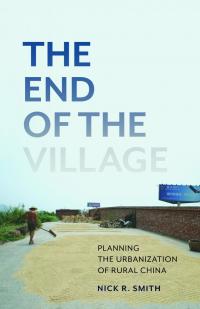View FLYER
 Abstract: Since the beginning of the twenty-first century, China has dramatically expanded its urbanization processes in an effort to reduce the inequalities between urban and rural areas. New development programs, including “urban-rural coordination”, “new-type urbanization”, and, most recently, “rural revitalization”, are restructuring China’s urban–rural relations and imposing novel forms of state-led urbanization onto the countryside. Rural simulacra, such as high-rise new towns, ecological protection zones, historical tourism sites, and industrialized farms, increasingly reflect planners' and policy-makers' urban imaginations of what the rural should be and have more to do with serving urban consumers than ensuring rural welfare. The result is a fundamental rewriting of the nation’s social contract, as villages that once organized rural life and guaranteed rural livelihoods are replaced by an increasingly urbanized landscape dominated by state institutions. Drawing on more than a decade of research in China’s villages, Smith explores the contested implementation of this radical new approach to urbanization and its implications for China’s villagers.
Abstract: Since the beginning of the twenty-first century, China has dramatically expanded its urbanization processes in an effort to reduce the inequalities between urban and rural areas. New development programs, including “urban-rural coordination”, “new-type urbanization”, and, most recently, “rural revitalization”, are restructuring China’s urban–rural relations and imposing novel forms of state-led urbanization onto the countryside. Rural simulacra, such as high-rise new towns, ecological protection zones, historical tourism sites, and industrialized farms, increasingly reflect planners' and policy-makers' urban imaginations of what the rural should be and have more to do with serving urban consumers than ensuring rural welfare. The result is a fundamental rewriting of the nation’s social contract, as villages that once organized rural life and guaranteed rural livelihoods are replaced by an increasingly urbanized landscape dominated by state institutions. Drawing on more than a decade of research in China’s villages, Smith explores the contested implementation of this radical new approach to urbanization and its implications for China’s villagers.
 Bio: Nick R. Smith is Assistant Professor of Architecture and Urban Studies at Barnard College, Columbia University. His research explores the politics of urbanization and planning, with a regional focus on China and Southeast Asia. Smith is the author of The End of the Village: Planning the Urbanization of Rural China. He is currently at work on a history of the Shekou Industrial Zone and the origins of China’s rapid urbanization.
Bio: Nick R. Smith is Assistant Professor of Architecture and Urban Studies at Barnard College, Columbia University. His research explores the politics of urbanization and planning, with a regional focus on China and Southeast Asia. Smith is the author of The End of the Village: Planning the Urbanization of Rural China. He is currently at work on a history of the Shekou Industrial Zone and the origins of China’s rapid urbanization.
